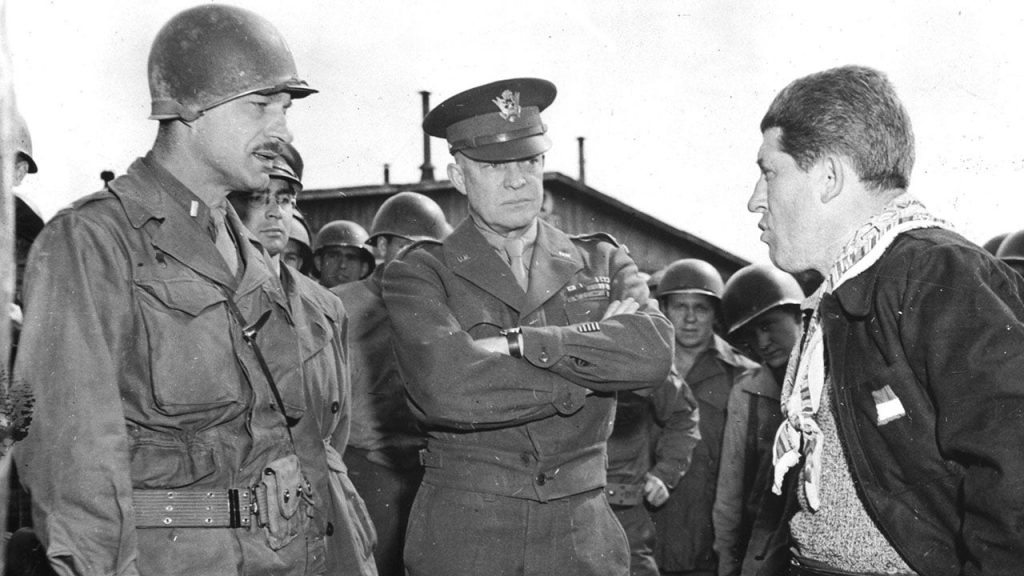Dwight D. Eisenhower’s significant career accomplishments, including serving as a two-term president and Supreme Allied Commander of Allied forces in Europe during World War II, are unparalleled in American history. He also played a key role in launching NASA, developing the interstate highway system, and mentoring future president Ronald Reagan. Eisenhower’s tenure as president of Columbia University from 1948 to 1953, during which he emphasized the importance of education for citizenship, is notable. He also vowed to keep alive the memory of the atrocities he witnessed at Ohrdruf concentration camp in Germany in April 1945.
Eisenhower’s efforts to document and publicize the horrors of the Holocaust, with a focus on the experiences of the Jewish victims, were crucial in ensuring that the world would remember and acknowledge these atrocities. He invited members of Congress and journalists to witness the scenes at concentration camps and compelled Germans and soldiers to confront the brutal realities. Eisenhower foresaw the possibility of Holocaust denial and took steps to prevent it by ensuring that the evidence was well-documented and widely disseminated. Despite his efforts, antisemitism remains prevalent on college campuses, including at Columbia University, where anti-Israeli student groups have taken over the campus quad and called for Israel’s destruction.
While current Columbia University President Minouche Shafik has expressed a commitment to confronting antisemitism on campus, complaints of antisemitism and Islamophobia are on the rise. The university has implemented restrictions on demonstrations, citing the need to protect students, though some argue that this interferes with free speech. The spread of antisemitic rhetoric, including calls for the destruction of the Jewish state, echoes the beliefs of Hitler’s National Socialist Party. Eisenhower’s warnings about the dangers of forgetting the lessons of the Holocaust are especially relevant in the face of rising antisemitism today.
Eisenhower’s legacy as a leader who stood against fascism and antisemitism serves as a reminder of the importance of education and remembrance in combating hatred and intolerance. The failure to fully acknowledge and address antisemitism and other forms of bigotry in educational settings represents a concerning trend that must be addressed. Eisenhower’s commitment to preserving the memory of the Holocaust and confronting antisemitism provides a powerful example for current leaders and educators to follow. The lessons of the past should not be forgotten, and efforts to combat hatred and discrimination should be prioritized in educational institutions and society as a whole.















